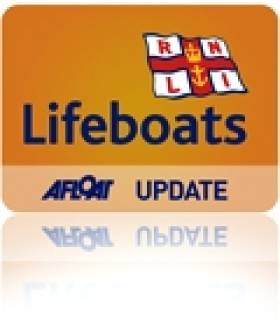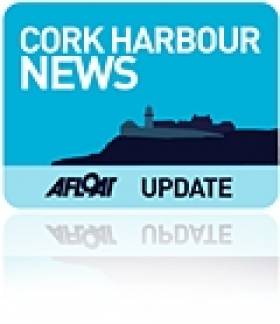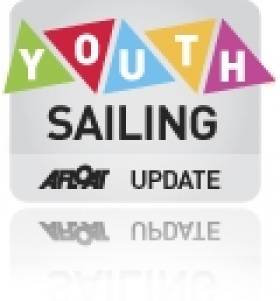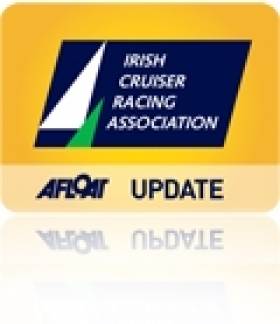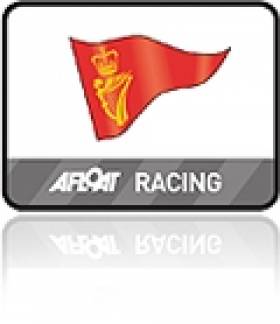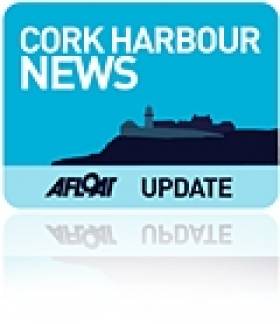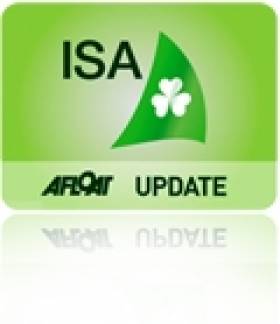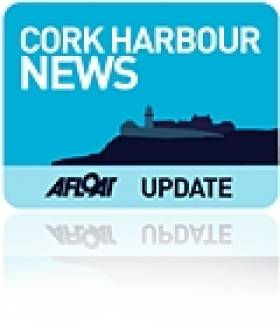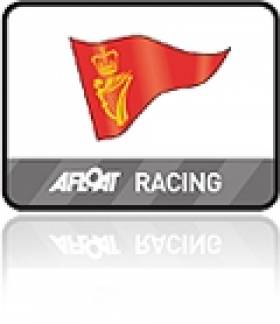Displaying items by tag: Cork Harbour
Five Incidents in Four Days for Cork Harbour Lifeboat
Crosshaven Volunteer RNLI Lifeboat has had a very busy few days as they were tasked to five incidents in four days.
On Thursday evening at 17.59, the Lifeboat was tasked to the upper reaches of Cork Harbour near the city to check out an unidentifiable object in the water. On arrival, the object was found to be a large bag containing foam. Friday evening, saw the Lifeboat heading up the Owenabue River to rescue two punts which had been floated off on the very high Spring tides and were perceived a danger to shipping.
Saturday evening at 20.34, the Lifeboat was again tasked to the North side of Great Island where a 55' Motor Launch with 3 persons on board had mechanical difficulties and drifting in high winds of force 7. On arrival at scene, the crew decided that because of the size and weight of the vessel and the high winds it was safer to anchor the vessel and take off the crew. They were safely landed at East Ferry Pier. As the Lifeboat was returning to Crosshaven, The Coastguard at Valentia again tasked the Lifeboat to search the area between Cobh and Monkstown for an overdue Rigid Inflatable Boat (RIB). After searching for a period, and with nothing found, the Coastguard stood down the volunteer Lifeboat crew to return to station.
Sunday afternoon, and the pagers were again activated at 16.33 to go to the aid of a small boat with engine problems at East Ferry. On arrival in the area, it was noticed that the casualty boat had managed to restart and head into East Ferry Marina.
Related Safety posts
RNLI Lifeboats in Ireland
Safety News
Rescue News from RNLI Lifeboats in Ireland
Coast Guard News from Ireland
Water Safety News from Ireland
Marine Casualty Investigation Board News
Marine Warnings
Department Denies Haulbowline Report
The spokesman told RTE news there is no likelihood of fines being imposed.
He added that the notice, which was issued last week, is part of a long standing legal case being taken against Ireland relating to other waste legacy sites.
Haulbowline was mentioned because it had no waste license.
Cork Institute of Technology Win 2010 Student Yachting Nationals
Last weekend saw the Student Yachting Nationals take place at the Royal Cork Yacht Club. The students had the use of the ISA J80 Sailfleet for the event. Six college teams entered for the Nationals which was the Qualifier for the Student Yachting World Cup 2011.
Racing was scheduled for Cuskinny on Friday and conditions were ideal with 17-20 knots of breeze. Race Officer, Nathan Kirwan, got in four good races lasting some 40 to 50 minutes each. However, spinnakers were banned as some wipeouts had been observed by the ISA Bosun who exercised his judgment in this regard. Some two minutes after the start of the first race UCC skippered by Robert O'Leary suffered a snapped halyard but were refused redress. CIT skippered by George Kenefick lost their only winch handle overboard some three minutes before the start in race 1 but still managed to win the race by a comfortable margin. In race 2 UCC came back strongly to take the gun and pushing CIT into second place. At this stage match racing had begun between the two Cork colleges with each throwing dummy tacks to try to clear their air. In Race 3 TCD skippered by Alistair Kissane took the win with CIT in second and UCC third. The final race of the day was won by CIT with UCC third. Overall standings for Day One were: CIT 6pts, with UCC and TCD on 12 pts each. UCD had got off to a shaky start which was to prove costly for them as they were on form on days two and three.
On day two the Race Officer moved the course to the Curlane Bank and spinnakers were permitted. CIT found their rythym taking the bullet in race 5 with UCD in second and a poor mark rounding relegated UCC to third place. Race 6 saw the O'Leary and Kenefick teams doing circles at the pre start as the competition was intensifying and it was looking like a two horse race. UCC took first place with NUIG taking second and CIT third. Donagh Good of CIT went for a quick dip in the cold water but managed to grab on and was pulled back on board by George Kenefick and Kevin Goulding. Later during day 2 the wind was rising to 22 knots so spinnakers were once again banned. UCC found the conditions very much to their liking, taking the win, with TCD in second, UCC third and CIT fourth. Race 8 proved to be rather interesting with CIT managing to relegate UCC to last position and managing to keep UCC in their sight for the duration of the race. Downwind was difficult for CIT with UCC right on their tail but UCC were not successful in finding a passing lane. Again, UCD took their second bullet of the day with CIT and UCC in fifth and sixth positions some four to five minutes behind the rest of the fleet. CIT were able to discard their fifth position but UCC were unlucky in having to count their sixth as they also had a sixth from day one. TCD again got a second position. Results after day two were: CIT 14pts, UCC 19pts, UCD and TCD on 21pts each.
Day 3 was a non discardable coastal race from Crosshaven to Kinsale counting for 1.5pts. The start line was just off Roches Point with five knots of breeze and brilliant sunshine. UCC led the fleet and NUIG and CIT were in last position 300 metres behind the rest of the fleet. As the race went on the wind increased to a nice south westerly breeze of 12 to 14 knots. As this stage it looked as if it might be UCC's lucky day but Team CIT maintained their composure and by tacking close to the shore and keeping out of the tide managed to finish in third position at the Bulman Buoy with UCC first and UCD second. This result was to prove sufficient to give CIT the national student title for 2010.
Overall Results:
CIT 18.5pts
UCC 20.5pts
UCD 24pts
TCD 28.4pts
NUIG 33pts
UL 40pts
Salute the Cup Team at the 2010 ICRA Conference
80 Boats for Royal Cork Autumn League (PHOTOS HERE!)
An 80 boat fleet set sail for the opening day of the Autumn League at the Royal Cork Yacht Club Regatta today writes Claire Bateman.
While conditions setting out were typical of a lovely Autumn day, the wind, however, was to prove fickle going up and down changing direction. As a consequence of this Race Officer David O'Brien with the Red fleet made up a course to suit the conditions and Race Officer Richard Leonard brought the Green fleet to the Eastern bank where they were to sail a laid course. The Whitesail fleets sailed an extra leg to their race as they have decided to have only one race each day.
The Red fleet started their first race at Whitebay and went to a laid mark on the eastern shore before spinnkaers were hoisted to be dropped shortly afterwards as they headed for OFE 2 before fetching across to Ringabella and running in to a finish at no. 5. Race 2 saw a beat out to W2 for Classes Zero, One and 1720s and a run back to No.11 where the course was shortened. Shortly after the start of the race a shower came and with it some wind but when the rain stopped the wind died resulting in the shortening of the course. Class 2 were also given a beat out to W2 but they were given a shorter course finishing at No. 7.
As usual we had welcome visitors from Kinsale, Dungarvan, Waterford and Cobh participating. It was good to see Jump Juice back in the water as it also was to see Indulgence back in action again. And perhaps best of all was to see a resurgence of 1720s back on their home waters in Cork Harbour.
Prize giving took place immediately after racing and the prizes were distributed by Irene O'Donovan a Partner in the sponsor firm of O'Flynn Exhams Solicitors.
Racing will continue next Sunday with first gun at 10.55am.
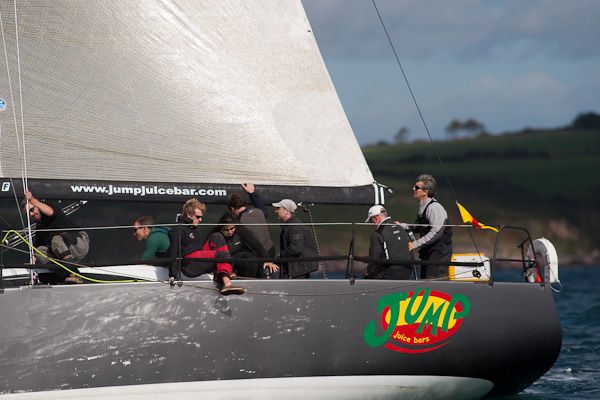
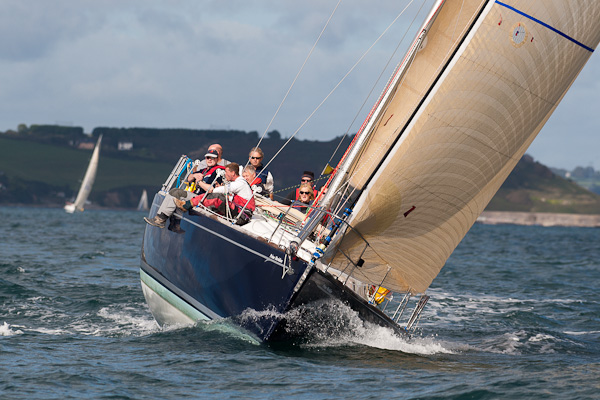
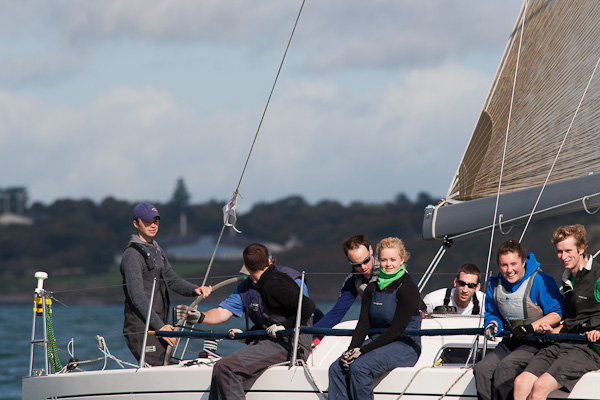
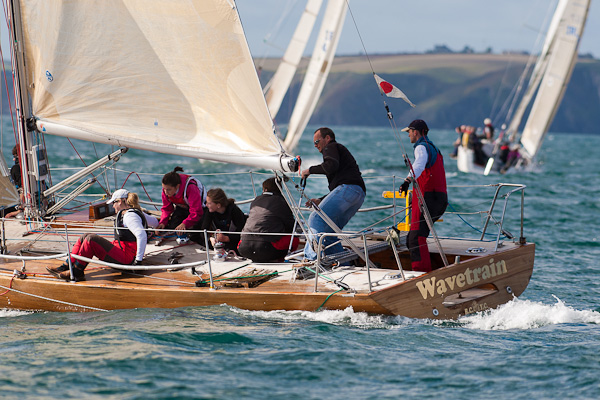
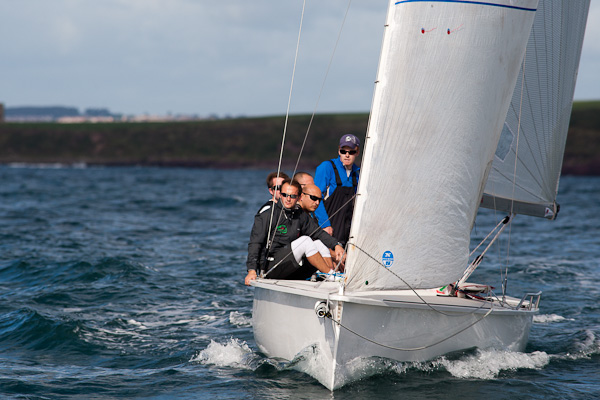
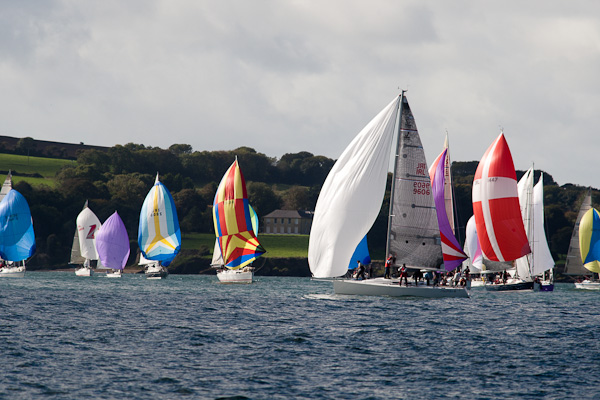
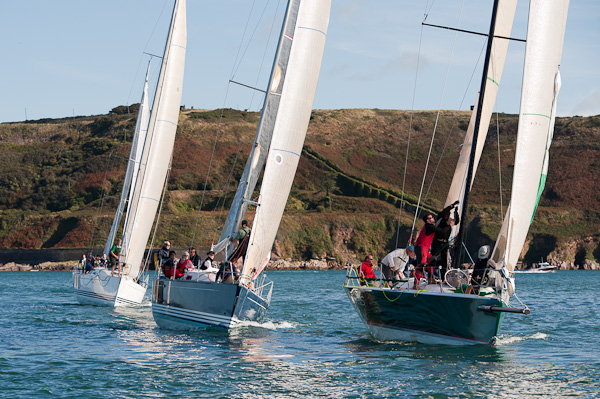
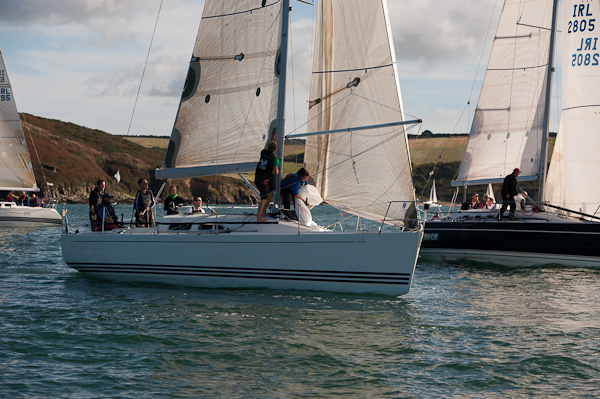
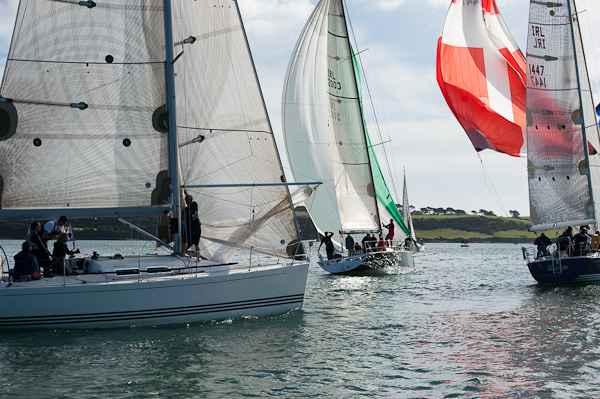
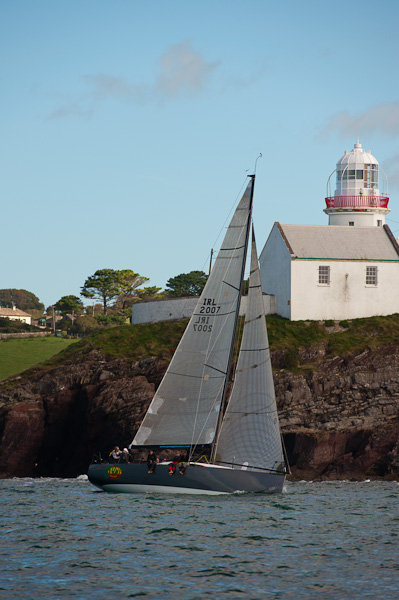
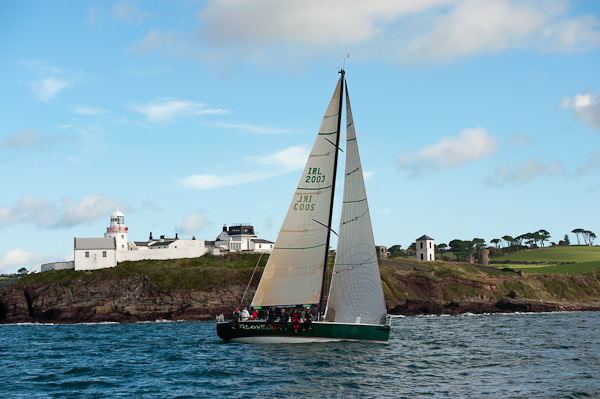
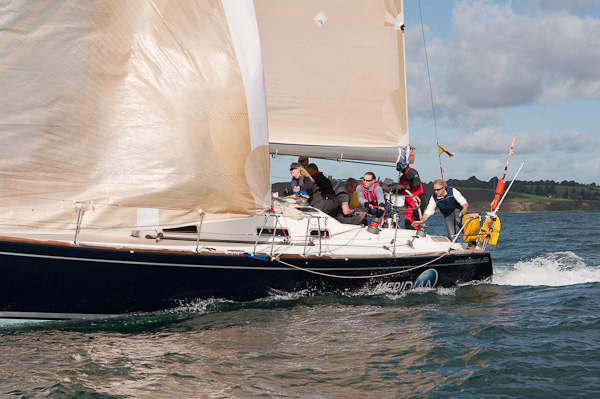
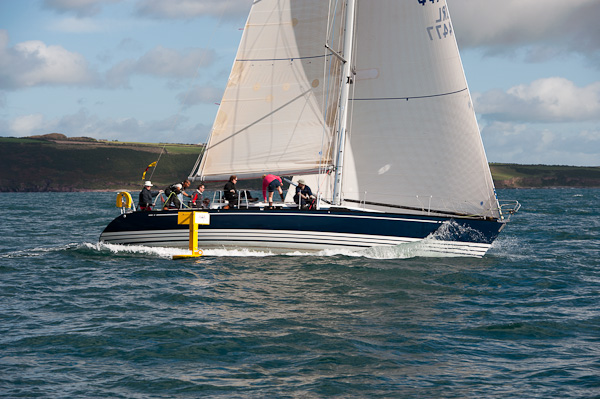
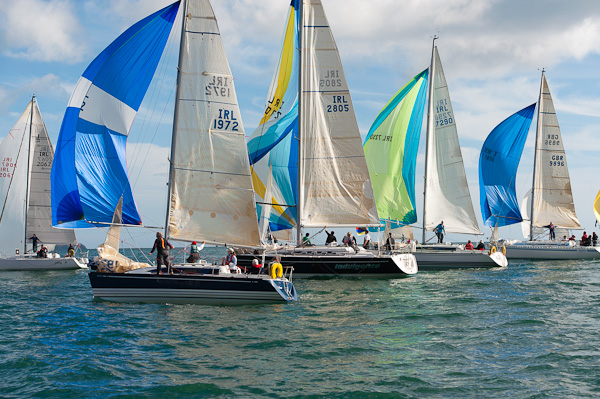
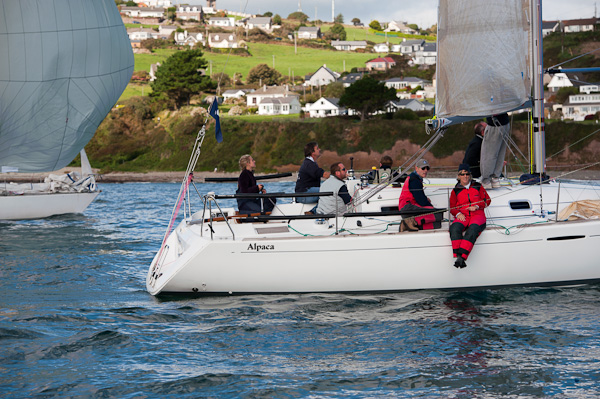
First Race Results on Royal Cork Site HERE
More Bob Bateman Photos on the Gallery HERE
Cork Harbour Fort Attracts Thousands of Visitors
Thousands of people from all over Ireland visited Fort Camden, Crosshaven during September when the fort, officially named as Fort Meagher, was open to the public for the first time.
The partnership project, which is being spearheaded by Crosshaven Tourism on behalf of the local community association, is being undertaken by Fas workers with funding from Cork County Council and the active support of Rescue Camden, local businesses and other volunteers the local community
At a reception to mark the restoration of two of its barrack rooms, County Manager Martin Riordan congratulated everyone involved. 'This is all about action by a small group with lots of energy and commitment to their own locality. There's lot of talk about what could and should be done but right now we need more bodies like Crosshaven Community Association and Tourism'.
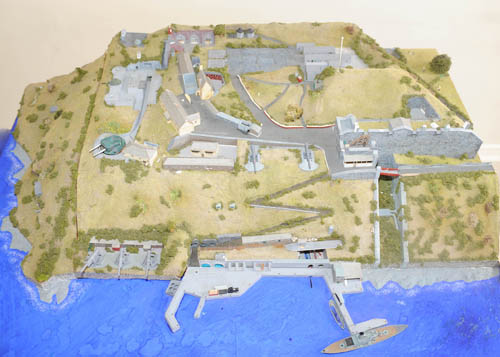
Mr Riordan paid tribute to Fas and praised the staff in the county council who put so much work into the project over many years, including former chief planning officer Brendan Kelleher. He concluded by saying that there had to date, been a tremendous return for a relatively small investment.
Congratulations were also extended by Cllr John A Collins who said it was a landmark day and the start of a bright new beginning for Fort Camden. The fact that on the day he visited during September, he heard so many non-Irish accents confirmed its exciting potential as a military heritage, tourism and arts attraction.
Paul Brierley, chairman of Crosshaven Tourism said the opening of the first two rooms to be restored was a day of celebration. He spoke of the tremendous voluntary ethos and goodwill and believed the project would be 'a template for the county'
He thanked the county manager 'for allowing us a sense of community ownership, his belief in our ability to deliver, his support thus far' and applauded him for 'a shared vision of realizing the tourism potential of Cork Harbour of which there can be no doubt Fort Camden and indeed Crosshaven will have a huge role to play'.
'We have opened the gates to what we feel will be the 'jewel in the crown' of Cork Harbour and Crosshaven, one of the finest remaining classic artillery forts in the world named after one of the most famous men in Ireland, Thomas Francis Meagher', said Paul who urged people to continue supporting the project and visit the website www.rescuecamdenm
Further works are ongoing and it is hoped to again re-open to the public Fort Camden on a temporary basis in March.
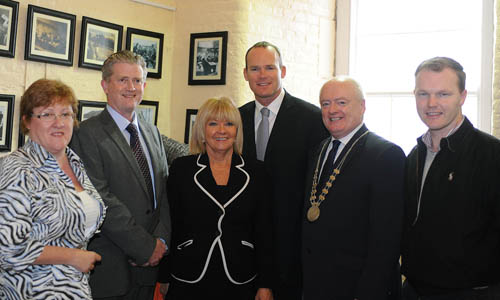
Pictured at the reception (from left) Cllr Paula Desmond, County Manager Martin Riordan, Cllr Deirdre Forde, Simon Coveney TD, Deputy Mayor of County Cork Cllr John A Collins and Cllr Seamus McGrath.
New Pay to Race series to Stop in Cork, Galway and Derry
A new pay to race series around our shores with stop offs in Cork, Galway, Derry has been confirmed. The Round Britain and Ireland Challenge gets underway next year and no experience is needed pre race by the crews as a large amount of training is offered; the crews usually include a mixture of ability and experience and all the yachts are skippered by a Royal Yachting Association Yachtmaster qualified individuals.
With stop offs in a variety of ports this event should offer something for everyone interested in seeing Britain and Ireland from a new perspective whilst racing in a fleet of fantastic yachts.
The races which will start from spring 2011 are using a fleet of six bespoke brand new Dehler Varianta 44’s which are in build in Griefswald at the Hanse/Dehler yard right now. The training weekends and each race start and end in Weymouth bay, the home of the sailing events of the 2012 Olympics, with stop offs from Cork, Galway, Londonderry, Inverkip, Stornoway, Leith, Hull, London, and Cowes.
The series offers sailors of all experience levels the chance to either undertake a single leg from £600, or the whole 28 day race from £4,750 per person. Included in this price are two training weekends with around 300 sea miles, sea survival training, all port fees and food whilst at sea, Gill OS2 offshore foul weather gear, and a post race awards dinner. For more information please contact the race organisers at [email protected], or call 01305 775935 / 08456 434603.
ISA Seek New Date for All Ireland Event
Following the abandonment of the All Ireland Sailing Championships at Royal Cork last weekend due to lack of wind the Irish Sailing Association (ISA) has yet to announce dates for the rescheduled event. An autumn date to accomodate all concerned is the objective, the association said yesterday. The eight finalists involved are; Anthony O'Leary, Neil Kenefick, Nicholas O'Leary, Garrett May, Niall Henry, James Espey, Nick Walsh and Ewen Barry.
'Unauthorised' Harbour Moorings to be Removed
The Port of Cork intends to remove all unauthorised or illegibly marked moorings in Cork harbour this winter and has written to harbour users about the removal which will start next month.
The Port Company recently completed a detailed survey of all moorings within Cork Harbour. A number of unauthorised and illegibly marked moorings have been identified in the course of the survey. The Port says it is the responsibility of the mooring holder to ensure that their mooring is in the correct position and is clearly marked at all times with the correct mooring number. All unauthorised or illegibly marked moorings will be removed over the coming months commencing on the 1st day of November 2010.
The Port has asked Royal Cork Yacht Club to bring the matter, affecting all harbour users, to the attention of its members according to a post on the club website.
The post also says that all boats are requested to obey the speed limits in various parts of the harbour, particularly on their way to the new pontoon in the city. Boats travelling at excessive speed make life very difficult for other harbour users, particularly the members of the rowing clubs on the river.
1720s Ready for Cork Harbour October Contest
Ten 1720s will contest Sunday's first race of Royal Cork's October league in force. The 2010 league marks the return of these sports boat to Cork Harbour but it comes at the expense of the club's three Commodore's cup boats originally planning to take part.
At least two 1720s are entered by the O'Leary family which almost certainly means the Ker 39 Antix will stay on its berth. Peter O'Flynn from Baltimore is sailing and other 1720 entries have been received from Tom Durcan and Denis Murphy.
Following the successful Commodore's Cup campaign Marinerscove is now in the UK and Andrew Creighton has indicated the small boat Roxy will not be sailing.
There have been a few tweaks to the format of the league and this year there will be two courses both starting with committee boats.
Competitors from other south coast ports such as Waterford Harbour SC arrived in Crosshaven this week.
Course Zero, One and Two and 1720 designated as Red Fleet while classes three, four, Whitesail One and White sail Two will be designated Green Fleet and the classes will alternate between the courses each weekend.
Prizes will be awarded for first, second and third place in each class and a daily prize giving will take place no later then 17.30 hrs in the RCYC Club House. The final prize giving will take place at the prize giving gala dinner on Saturday, October 30th.



























